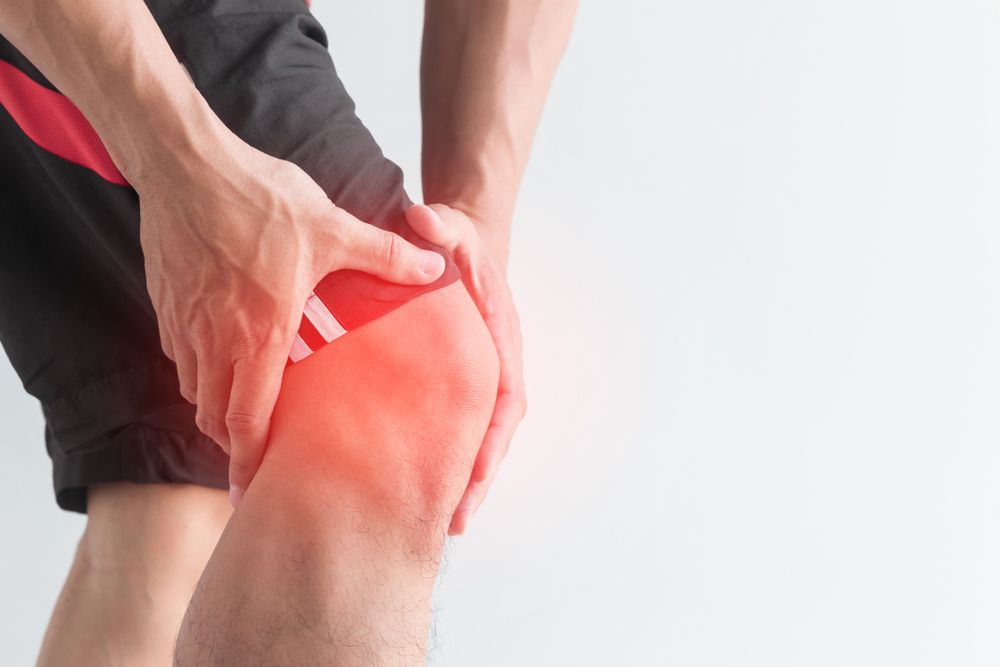
Even if your knee injury happened a while ago, it can still cause pain. But so can many other things, including arthritis and other conditions. To find out what’s going on in your case, you’ll need to see your doctor.
At that visit, you’ll talk about your symptoms and the injury. You’ll also get a physical exam, and you may need to get an X-ray, MRI, CT scan, or other tests.
Questions Your Doctor May Ask
Your doctor will want to know as much as possible about what’s going on with your knee. Be ready to answer questions such as:
- When did the pain start?
- Where does it hurt: the front, center, side, or back of the knee?
- Did it start suddenly or slowly?
- How would you describe the pain: dull, sharp, or achy?
- Is the pain always there, or just now and then?
- Is there any swelling or redness? Does it feel warm?
- Do any activities make the pain better or worse?
- Did your pain start because of a specific injury? If so, your doctor will want specific details of what happened, including what you were doing and whether you had to stop right away.
Your answers will give your doctor clues about the cause of your pain. For instance, a popping or snapping sound may mean that you tore a ligament. If your pain is worse when you rest and your knee is stiff when you wake up, you could have a type of arthritis.
Your doctor will also ask about:
- Problems with any other joints
- Any knee injuries or surgeries you’ve had
- Other health issues that might be causing the pain
A hip problem, for example, can cause you to walk awkwardly, which throws off the alignment of your knees, causing pain. Also, pain from your hip can make your knee hurt.
Let your doctor know what you’ve already tried to treat your knee pain, such as medicines, braces, and physical therapy.
Physical Exam
First, your doctor will compare your painful knee with your healthy one, looking for any differences.
In addition to redness, swelling, bruising, and discoloration, your doctor will check for differences in your muscles. Knee pain often happens when the outer muscles of the thigh are stronger than those in the mid-thigh (causing the kneecap to be pulled “off track”), so your doctor will pay particular attention to the vastus medialis, a muscle in your mid-thigh that extends to the knee.
Your doctor will also feel your knee, checking for pain, warmth, and swelling. He will then bend, straighten, rotate, or press on the knee to feel for injury and find out how well the knee moves and where the pain is. You may need to stand, walk, or squat to help check on that.
Imaging Tests
Depending on your medical history and the findings of the physical exam, your doctor may recommend one or more of these tests to see inside your knee:
X-ray. This quick, painless test produces a 2-dimensional picture of your bones that helps find breaks and joint diseases like osteoarthritis.
CT scan. It combines X-rays taken from many different angles to give a 3-dimensional view of the knee. The test shows much more detail of the bones than regular X-rays, and it can help diagnose bone problems and find breaks in bones that X-rays may not pick up.
Bone scan. This test creates images of bones on a computer screen or film. First, you’ll get a harmless radioactive material injected into your bloodstream. The material collects in the bones, particularly in abnormal areas of the bones, and shows up on a scanner.
MRI. In this test, a powerful magnet linked to a computer creates pictures of areas inside the knee. It’s useful for finding damage to soft tissue, such as muscles, ligaments, cartilage, and tendons.
Lab Tests
Your doctor may order laboratory tests to confirm a diagnosis. For instance, an analysis of fluid taken from your knee can spot an infection, inflammation, or gout. The procedure can also help relieve pain and pressure.
Precision Pain Care and Rehabilitation has two convenient locations in Richmond Hill – Queens and New Hyde Park – Long Island. Call the Richmond Hill office at (718) 215-1888, or (516) 419-4480 for Long Island office, to arrange an appointment with our Interventional Pain Management Specialist, Dr. Jeffrey Chacko.













